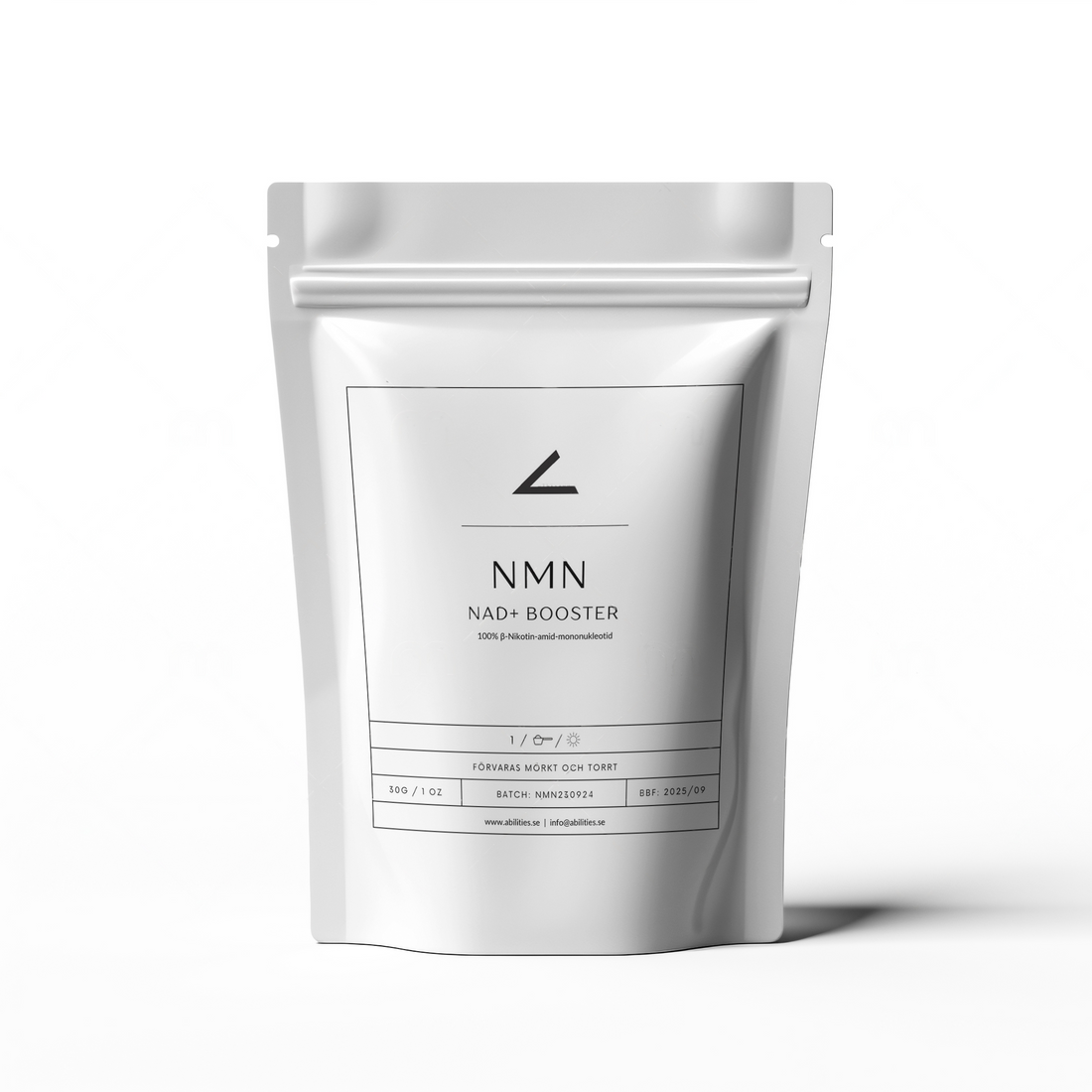
Why Boosting NAD Levels is Essential for Optimal Health
Share
Boosting NAD+ (Nicotinamide Adenine Dinucleotide) levels is important because NAD+ is a critical molecule in the body that plays a key role in energy metabolism, cellular repair, and overall cellular health. Here are some reasons why maintaining or boosting NAD+ levels is crucial:
-
Energy Production: NAD+ is essential for the function of mitochondria, the powerhouses of the cell. It helps convert food into energy by facilitating the process of cellular respiration. This is important for maintaining energy levels and supporting the health of organs that require high energy, such as the brain, heart, and muscles.
-
Cellular Repair and Longevity: NAD+ is involved in the activation of sirtuins, a family of proteins that regulate various cellular processes, including DNA repair, inflammation reduction, and longevity. These processes are crucial for maintaining healthy aging and reducing the risk of age-related diseases.
-
DNA Repair: NAD+ is necessary for the activity of enzymes called PARPs (Poly(ADP-ribose) polymerases), which are involved in DNA repair. As we age, DNA damage accumulates, and maintaining high NAD+ levels helps repair this damage, potentially preventing diseases such as cancer and neurodegenerative disorders.
-
Anti-Aging Effects: Research suggests that NAD+ levels decline with age, which is associated with a variety of age-related conditions. By boosting NAD+ levels, it may be possible to counteract some of the effects of aging, promoting healthier aging and potentially extending lifespan.
-
Improved Metabolism: NAD+ is also important for regulating metabolism and fat storage. Higher NAD+ levels may support better metabolic function, helping the body maintain a healthy weight and improve insulin sensitivity, which can lower the risk of metabolic diseases like type 2 diabetes.
-
Neuroprotection: NAD+ plays a role in protecting the brain from oxidative stress and supporting neuronal function. Low NAD+ levels have been linked to neurodegenerative diseases like Alzheimer’s and Parkinson’s, making NAD+ a target for potential therapies in these conditions.
-
Inflammation Reduction: NAD+ can help modulate inflammatory pathways in the body. Chronic inflammation is associated with many diseases, including cardiovascular disease and autoimmune conditions, so boosting NAD+ may have anti-inflammatory benefits.
How to Boost NAD+ Levels
Some ways to boost NAD+ levels include:
- Exercise: Regular physical activity can increase NAD+ production.
- Caloric Restriction: Intermittent fasting or caloric restriction has been shown to increase NAD+ by activating certain metabolic pathways.
- NAD+ Precursors: Supplementing with NAD+ precursors such as nicotinamide riboside (NR) or nicotinamide mononucleotide (NMN) has been shown to increase NAD+ levels.
- Healthy Diet: Foods rich in B vitamins, particularly niacin (vitamin B3), can help support NAD+ synthesis.
Overall, boosting NAD+ levels can contribute to better energy, improved metabolism, enhanced cellular repair, and protection against aging-related diseases.
References:
"NAD+ and sirtuins in aging and disease" (2020) by R. K. Belenky, et al., in Science. This paper discusses the role of NAD+ in aging and how sirtuins, which depend on NAD+, contribute to the regulation of aging-related pathways.
"Nicotinamide adenine dinucleotide and its role in mitochondrial biology" (2018) by R. G. Ziegler. This review explores how NAD+ is essential for mitochondrial function and energy production.
"The role of NAD+ in DNA repair and genomic stability" (2014) by J. S. C. C. A. H. A. I. M. N. R. H. in Nature Reviews Molecular Cell Biology. This paper looks at the critical role of NAD+ in DNA repair mechanisms, especially through the activation of PARPs.
"NAD+ and neurodegeneration: Understanding the links" (2020) by T. G. L. et al., in Nature Reviews Neuroscience. This article reviews the connection between NAD+ depletion and neurodegenerative diseases like Alzheimer’s and Parkinson’s.
"NAD+ metabolism in health and disease" (2020) by S. S. A. et al., in Nature Reviews Endocrinology. This study provides insights into how NAD+ regulates metabolic processes and its potential in treating metabolic disorders.
"Nicotinamide mononucleotide (NMN) supplementation enhances the biosynthesis of NAD+ and improves mitochondrial function in aged mice" (2016) by Yoshino, J., et al. published in Nature Communications. This study shows how NMN supplementation significantly boosts NAD+ levels and improves mitochondrial function, particularly in aging mice.
